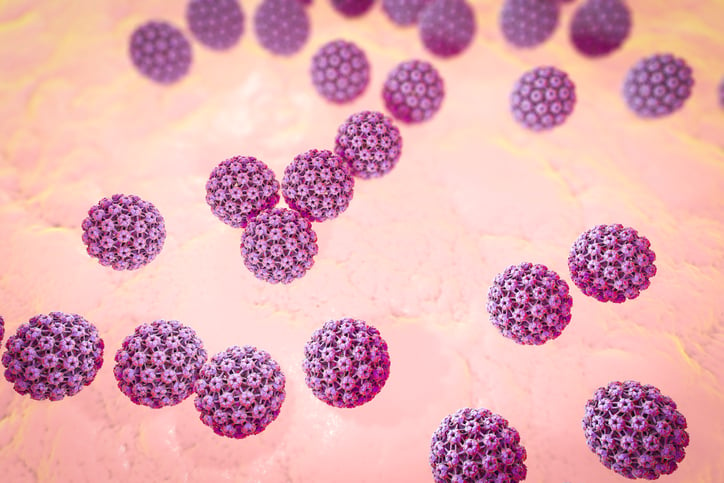Tobacco and alcohol are frequently discussed when talk about head and neck cancer. However, another participant is emerging—quieter, less well-known, but increasingly dangerous: the Human Papillomavirus, or HPV.
HPV has long been connected with cervical cancer in women, but is now recognized as a substantial cause of head and neck cancers, particularly oropharyngeal malignancies that affect the tonsils and back of the throat. What’s more worrying is that this trend is becoming increasingly prevalent among Indian men.
What is HPV, and how does it affect the head and neck?
HPV is a genus of viruses that spreads via skin-to-skin contact during sexual activity. While many strains are innocuous and resolve themselves normally, some high-risk strains (particularly HPV 16 and 18) might cause aberrant cell alterations. These alterations can eventually lead to cancer.
HPV infection of the mucosal surfaces of the throat and mouth is common in the head and neck region. Unlike tobacco-related cancers, which develop after years of exposure, HPV-related cancer can harm people who have never smoked or drunk. Many individuals diagnosed with this type of cancer are otherwise healthy, without tobacco or alcohol intake history. Additionally, tobacco and alcohol consumption is prevalent among Indian men, which interact with existing HPV infection and further increases the head and neck cancer risk.
Why Indian Men Should Pay Attention
The rising prevalence of HPV-related head and neck cancer among Indian men is worrying, especially given the low level of public awareness. Discussions about HPV often focus on women’s health and cervical cancer, but men are also vulnerable—both as carriers and, increasingly, as patients.
Social changes, growing urbanisation, life style alteration including multiple sexual partners and oral sex contribute to increased HPV exposure. However, the idea that men should be vaccinated against HPV or checked for related concerns remains unprecedented, in India. This gap in awareness needs to be addressed immediately.
Recognize the symptoms
HPV-related head and neck cancer do not typically present with evident warning signals. Early signs may be subtle and readily overlooked. People do not consider seeing a doctor because the damaged areas (such as the base of the tongue or the tonsils) are not apparent during routine self-checks.
As the condition progresses, symptoms may worsen, persistent sensation that something is lodged in the throat, hoarseness, swelling in the neck, ear pain, unexplained weight loss. If any of these symptoms persist for more than two weeks, it is time to contact a doctor.
Diagnoses and Treatments
Early detection is critical to effective treatment. If symptoms are present, an ENT specialist or oncologist will most likely order a physical examination, imaging, and potentially a biopsy, to confirm the diagnosis.
HPV-related cancers are seen to respond better to therapy than those caused by tobacco. Surgery, radiation, chemotherapy, or a combination of these may be used to treat the condition. In some circumstances, newly targeted treatments or immunotherapy can be considered. Early detection generally assures favourable outcomes.
Post-treatment care is vital. Because these malignancies impair key activities, including speech and swallowing, patients may require speech therapy, nutritional counselling, and psychiatric treatment, to improve their quality of life, and their self-esteem.
Prevention begins with awareness.
Although the vaccination is well-known for its ability to prevent cervical cancer, it is also effective in protecting men against HPV-related head and neck cancers.
Encouraging vaccination before exposure, ideally during childhood and adolescence, can dramatically lower the risk of HPV infections and HPV related cancers in adulthood.
In addition to vaccination, maintaining good oral hygiene, engaging in safe sex, avoiding multiple sexual partners, and avoiding recognized cancer risk factors such as tobacco and alcohol, can help to lower the likelihood of acquiring HPV-related cancer.
Many Indian men, without the usual red flags of tobacco or alcohol use, are being diagnosed with head and neck cancers driven by HPV. This silent, but rising threat demands more than awareness—it calls for proactive action.
Prevention through HPV vaccination is both safe and effective. It’s time to shed our inhibitions about HPV infection and advocate vaccination for men, boys and girls alike. Now it is time to prevent HPV related cancers before it becomes a threat to us.


